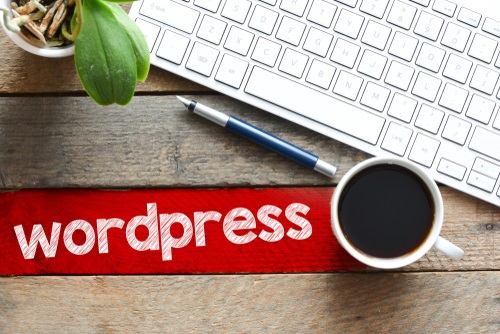This is a guest post written by Graeme Caldwell. I didn’t receive any compensation for it. You can find out more about Graeme in the ‘About the Author’ section at the end.
How long do your website visitors have to wait for pages to load? If it’s longer than a couple of seconds, you have a problem.
There is no reason for an optimized WordPress site to keep users waiting!
We’ve all seen WordPress sites that move slower than the laziest sloth, but poor performance isn’t the fault of the WordPress application or its database.
Both are highly optimized and capable of supporting a lot of traffic without breaking a sweat.
So, here are 5 reasons why your WordPress site is slow!

1. Bad Hosting
WordPress, a dynamic content management system, generates pages by executing PHP code and making database queries.
If it doesn’t have the resources it needs to do that work, it will never be fast.
Inadequate hosting comes in all shapes and sizes, from hosts that cram thousands of WordPress sites onto a low-end server to hosts that simply don’t understand how to optimize their software stack for WordPress.
If your WordPress site’s performance isn’t up to the standard you expect, consider migrating to a more generous hosting plan, or to a hosting provider that can offer your site the resources it needs.
ThemeSkills uses and recommends SiteGround hosting (here’s a detailed SiteGround WordPress Hosting Review)!
2. Plugins and themes
Installing lots of plugins won’t necessarily make your WordPress site slow. It all depends on how well they are coded and how much work they do.
Plugins that make a large number of database queries or run lots of code for every page load can cause performance issues.
Try disabling plugins one at a time to identify the culprit, then ask yourself if you really need the functionality it provides.
Themes can be a problem in this regard too, especially if they inject a lot of render-blocking JavaScript and CSS into the front-end.
Ask yourself if you really need that image slider, or if all those tracking and social media widgets are essential.
Remove what you don’t need, and you’ll see an uptick in performance.
3. No Caching
Caching is a key strategy for improving performance on your WordPress site.
Caching tools store database objects and rendered HTML, so that if the same content is requested again, it doesn’t have to be created from scratch.
There are many caching plugins for WordPress that improve performance and reduce server load.
Among the most popular are WP Rocket, W3 Total Cache, and WP Super Cache, which is developed by Automattic, the company behind WordPress.com.
ThemeSkills uses and recommends WP Rocket! You can see a detailed review here.
4. No CDN
A Content Distribution Network (CDN) takes your WordPress site’s static assets — images, JavaScript files, CSS files — and distributes them to servers located around the world.
When a user requests those assets, they’re served from the nearest CDN node, rather than from your WordPress site’s hosting server.
The result are lower latency and faster loading pages.
Most good WordPress hosting providers include CDN bandwidth as part of their hosting package or as an optional add-on.
If your hosting provider doesn’t offer a CDN, you can get one yourself by using a freemium service like Cloudflare, a paid one like StackPath (who bought the well-known MaxCDN), or the image CDN that is part of the Jetpack plugin collection.
SiteGround hosting has partnered with Cloudflare, so you can benefit from free CDN that you can set up with a few clicks in your cPanel.
5. Ancient PHP
PHP is a programming language, and WordPress is a PHP application, which means it’s written in PHP and runs on a PHP interpreter.
In 2015, PHP 7 was released, introducing many performance improvements.
WordPress runs much faster on PHP 7 than on PHP 5.X that many hosting companies still use.
Changing the PHP version that your WordPress site runs on isn’t a cure for the other performance problems I have discussed in this article, but it can give a performance boost.
Conclusion
WordPress users don’t have to put up with slow sites!
The optimizations I have mentioned are not technically challenging, and they can make a huge difference for your user experience and SEO.
That’s a wrap
Hope you found the post useful and comprehensive!
If you have any questions or thoughts, drop a comment or send a message via contact or Facebook page.
You can also hit the follow button on Twitter and subscribe to the YouTube channel.
If you want to start your own WordPress blog, or need a website for your business, ThemeSkills’ WordPress installation service is at your disposal!
If you need help, WordPress support and maintenance is on the menu as well!
You can also purchase a ready-made WordPress website with hosting and support included!




Leave A Comment